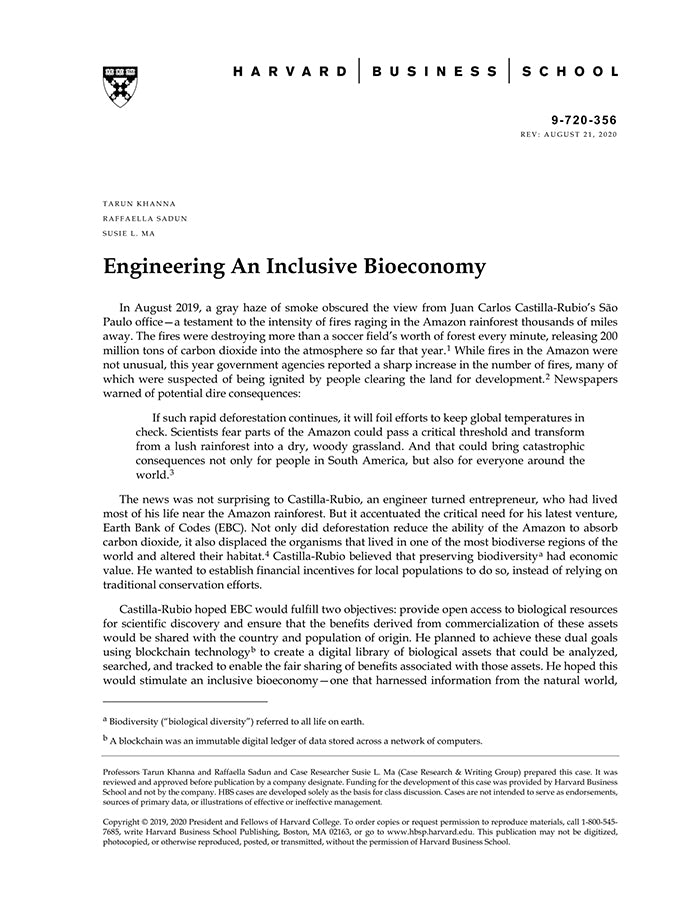Engineering An Inclusive Bioeconomy
受取状況を読み込めませんでした
In 2019, entrepreneur Juan Carlos Castilla-Rubio was developing a project he hoped could generate and share wealth from the natural resources of the Amazon without destroying those resources. His idea, called Earth Bank of Codes (EBC), would create a library of the genomic codes of all known species that could be tapped for discovery and innovation, from new medical interventions to more efficient manufacturing processes. He proposed to use blockchain technology to make the data both accessible and trackable so that its use could be monitored. Castilla-Rubio envisioned a time when a company in the U.S. could access a biological asset from the Peruvian Amazon, develop and commercialize a product based on the asset, and have a fraction of the resulting sales land directly in the bank account of various beneficiaries, including the Peruvian government and indigenous communities. Now he was facing major decisions about how to structure EBC to achieve his goals. Should he start at the top and build partnerships with national governments and inter-governmental organizations as the cornerstone of EBC? Or would it be better to forge ahead with a few stakeholders in an entrepreneurial project?
【書誌情報】
ページ数:24ページ
サイズ:A4
商品番号:HBSP-720356
発行日:2019/9/27
登録日:2020/10/19


